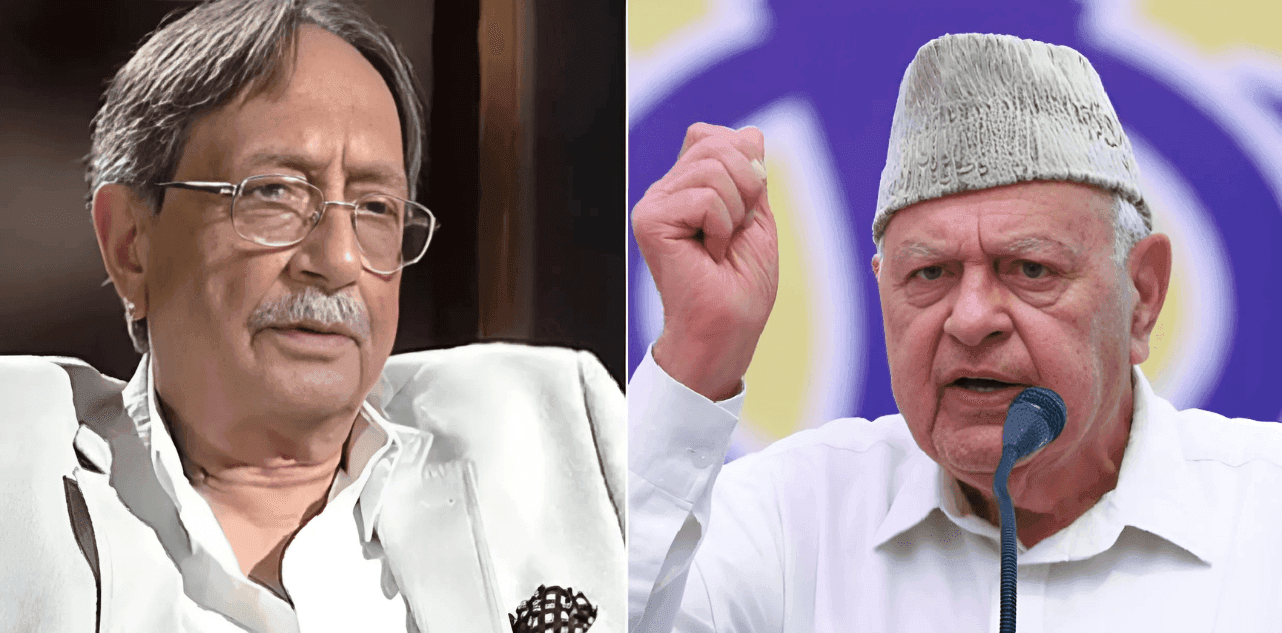Monday 16 February 2026
As Farooq Cries Foul, Dulat says his book praises former J&K CM
Share

Former Jammu and Kashmir Chief Minister Farooq Abdullah has expressed strong disappointment over revelations made by former RAW chief A.S. Dulat in his new book, The Chief Minister and The Spy. Abdullah, who has shared a personal and professional rapport with Dulat for decades, felt “betrayed” by the ex-intelligence officer’s claim that he had privately supported the abrogation of Article 370. In response, Dulat clarified that his book does not criticize Farooq Abdullah, but rather pays tribute to his leadership.
Speaking to The Times of India, Dulat said, “If he is saying I have betrayed him, he possibly has not read the book. The book is not a critique but praises Farooq Abdullah for the leader he is.” He added that his former boss, M.K. Narayanan—former Intelligence Bureau (IB) chief—wrote in the foreword that Abdullah remains one of the tallest leaders in Kashmir and India.“And I stand by that,” Dulat reiterated.
In the chapter titled Abrogation and its Aftermath, Dulat sheds light on Abdullah’s nuanced position regarding Article 370, the constitutional provision that granted special autonomy to Jammu and Kashmir. According to Dulat, Farooq Abdullah was deeply hurt by the Narendra Modi government’s decision to abrogate the article on August 5, 2019.
While the BJP had always made its stance clear on Article 370, Dulat writes that Farooq had also been transparent about his openness to collaborate with the central government—on his own terms. Dulat recounts a 2020 meeting with Farooq where the veteran politician allegedly said, “Maybe the NC could even have had the proposal passed in the legislative assembly in Jammu and Kashmir. We would have helped. Why were we not taken into confidence?”
Despite his willingness to engage with Delhi, the former CM was reportedly devastated by his subsequent house arrest following the move—a gesture he saw as deeply humiliating and unexpected.
One of the more gripping episodes in the book involves the 1989 abduction of Rubaiya Sayeed, daughter of then Union Home Minister Mufti Mohammed Sayeed. Dulat, who was then heading the IB’s Kashmir operations, offers new insights into how events unfolded.
According to him, the Jammu and Kashmir Liberation Front (JKLF) initially considered kidnapping Farooq Abdullah’s daughter, Safia, but abandoned the idea due to tight security at the Gupkar Road residence. Their next target was the daughter of the then SSP Allah Baksh, known for his no-nonsense, law-enforcement approach. However, after Mufti Sayeed took charge as India’s first Muslim home minister under V.P. Singh’s newly formed government, JKLF saw a symbolic opportunity in abducting Rubaiya—someone they saw as representative of Delhi’s power in the Valley.
Farooq Abdullah, who was abroad when the kidnapping occurred, initially opposed releasing militants in exchange for Rubaiya, insisting he would not agree to such a deal “even if it were his own daughter.” Nevertheless, on Dulat’s urging, he eventually reached out to a distressed Mufti, reassuring him with the words, “Don’t worry.” Farooq ultimately approved the deal to release the militants and secure Rubaiya’s safe return.
Dulat’s narrative also touches upon Farooq Abdullah’s reaction to the IC-814 hijacking crisis in 1999, which ended with the release of three dreaded terrorists. While Abdullah reportedly raised no objections to the release of Masood Azhar and Omar Sheikh, he was reluctant to allow the freeing of Mushtaq Zargar, a known Kashmiri militant.
At a critical moment, then J&K Governor Gary Saxena stepped in to convince the CM. Over drinks—specifically Black Label whisky—Saxena reportedly managed to persuade Farooq that releasing Zargar was unavoidable, given the lives at stake in the hijackedIndian Airlines flight.
Throughout the book, Dulat highlights the camaraderie he shared with Farooq Abdullah during his tenure as IB chief in Kashmir. The two would often sidestep official protocol to engage in candid conversations over drinks and meals, discussing the complex realities of Kashmir. Dulat portrays Farooq as a pragmatic leader who sought to maintain a balance between regional aspirations and national interests.
Newsletter
Stay up to date with all the latest News that affects you in politics, finance and more.